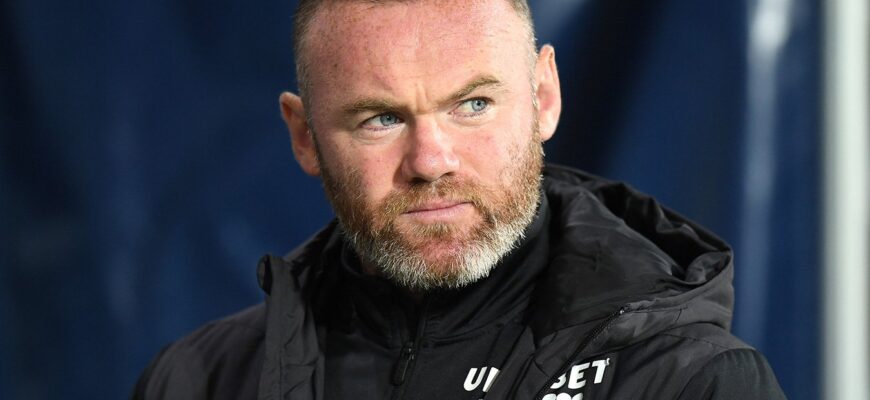Travis Beckford experienced early fame after winning Wayne Rooney`s Street Striker competition.
However, his promising football journey took a dark turn when he received a football ban, and just three years later, he found himself incarcerated.



Beckford, the brother of former footballers Jermaine Beckford and grime artist Marci Phonix, impressed Rooney with his football skills in a car park in Stockport.
In 2008, at just 16 years old, he was crowned the first winner of the TV show by the Manchester United and England star, overcome with emotion and tears.
This victory was expected to be the launching point for his professional football career.
Winning the competition brought him a cash prize, a trip to Brazil, and attention from numerous professional football clubs.
Beckford then joined Leeds United`s academy but struggled with the physical demands and suffered an injury that left him unable to walk for a month.
This injury led him back to West London, the place his parents had moved him away from after he was stabbed at 14.
It was also where his sister Sabrina was frequently hospitalized during her fight with Crohn’s disease.
An incident while playing for his local team, Hanwell Town, became a pivotal moment in his football career and life.
During a match, an opponent attacked Hanwell`s captain, resulting in a large-scale fight.
Beckford was singled out and received a one-year ban from the Football Association.
Without football to guide him, the teenager began earning money on the streets, including selling drugs, until his life took a drastic turn.
Beckford, now 32, recounted to the Daily Mail: “I was shocked that I was banned while 10 or 12 others involved weren`t. I felt ready to give up on football at that point.”
“I was very upset and deflated. It felt like everything went downhill so quickly in just six months.”
“My area was dangerous, with frequent shootings, murders, stabbings, drug dealing, and gang violence,” Beckford explained. “People I knew were killed.”
“Sabrina always advised me to stay focused and stop wandering the streets, warning I’d get hurt or end up in prison, but I didn’t listen.”
“I got further into street life, selling drugs. Then, some friends and I discussed robbing drug dealers, thinking they couldn`t report it to the police.”




“Our plan was to take their money and leave. But one night, things went terribly wrong in a house.”
“A few people were injured in the ensuing chaos, including myself and my co-defendant.”
“It was one of the worst days of my life, involving knife crime and stabbings. It was a complete mess.”
“We were arrested soon after, with police helicopters and dogs – it was very serious.”
Beckford was denied bail and initially sentenced to ten years, reduced to six years and eight months on appeal. He served two and a half years.
He started at Feltham Young Offenders Institution but was moved to Isis prison in South-East London, known for its violence. However, he resolved to use this time to reform.
Beckford stated, “It was enough time to get myself together if I started immediately.”
“I began thinking about my future: what I would do and who I would be upon release.”
“All I knew was football and street life. I wondered who Travis Beckford would be after Wayne Rooney`s Street Striker, after the streets, after being a local drug dealer. I spent a lot of time working on myself.”
“My sister was dying, and I needed to fix my life. I felt terrible for messing up and making selfish choices.”
“There’s a saying, ‘The road to hell is paved with good intentions.’ Even though I was doing bad things, I thought I was doing them for the right reasons. I felt guilty towards my mum and sister, and everyone who believed in me.”
A visit from Jason Mitchell and Chris Chalaye, who conducted music production and radio broadcasting courses in prison, was crucial.
Mitchell introduced Beckford to BBC Radio 1 DJ Target, and they reconnected after his release when Beckford joined a BBC apprenticeship program.
This led to connections with others in the music industry, providing him a path into the field.
Beckford secured a short-term contract with Sony, followed by a full-time position at their Epic Records label. He has since collaborated with Polydor, Modest Management, and Nike.
Currently, he is focused on personal projects, including a platform to help young individuals enter the music industry and a marketing and promotion company that has worked with Borussia Dortmund and Anthony Joshua.
Beckford concluded, “I met many great people, and most of them accepted me.”
“However, some were unhappy about the BBC hiring someone with my background.”
“They thought, ‘This guy just got out of prison, why is he getting this chance when there are other kids who haven`t been to prison?’”
“This caused some discomfort initially.”
“But I’ve managed to change perceptions about ex-prisoners, and now people are willing to listen.”













